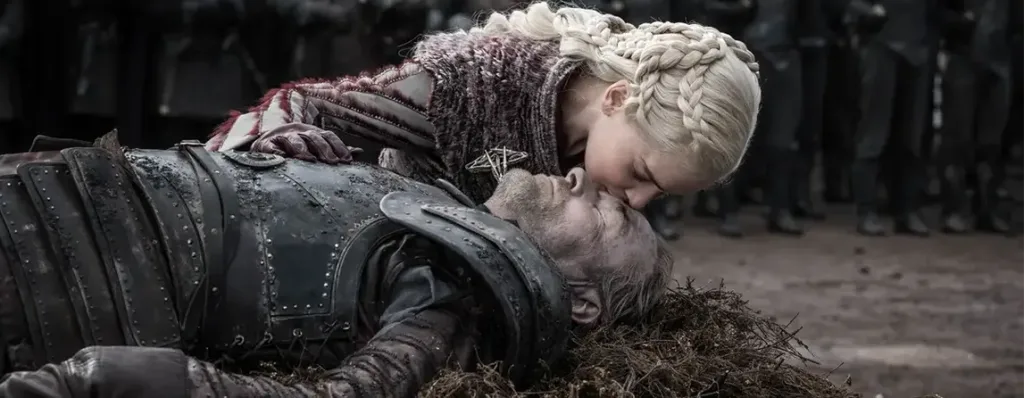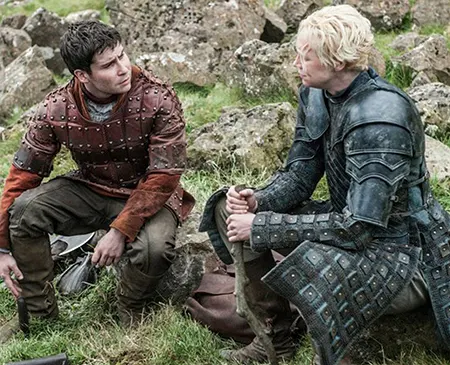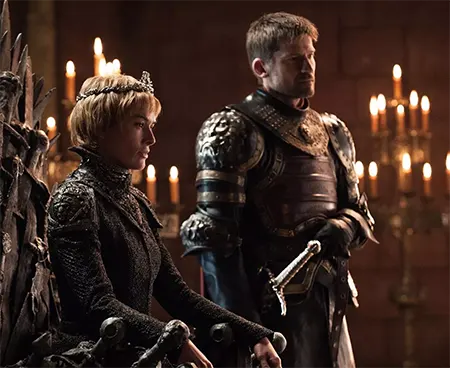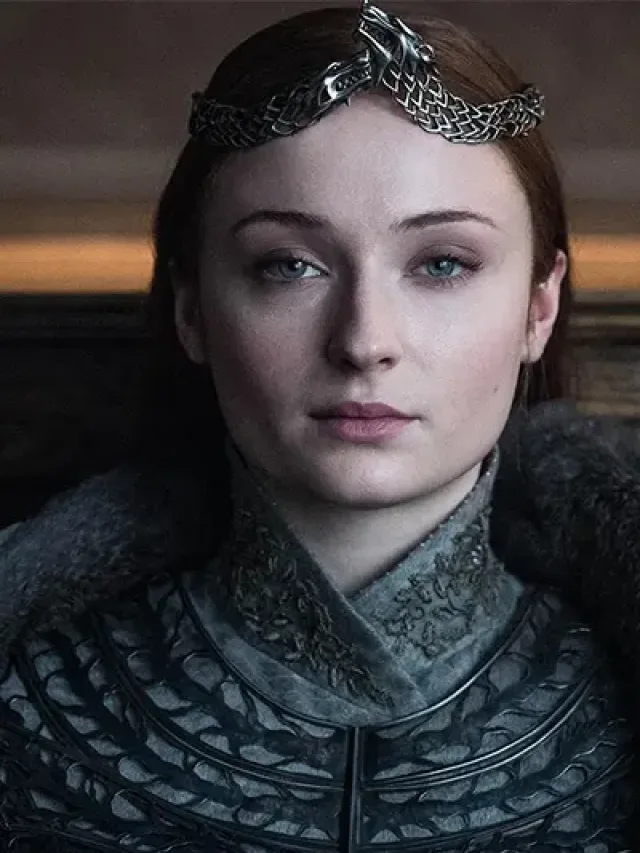Game of Thrones Star’s Heartfelt Journey: 8 Surprising Moments

Is Game of Thrones Star a popular show?
Game of Thrones series has undeniably left an indelible mark in the realm of television. The intricate plotlines, memorable characters, and breathtaking cinematography have solidified its status as a cultural phenomenon. At the heart of this epic saga is the Game of Thrones star, whose performances have brought magic to the screen.
The Game of Thrones series, based on George R.R. Martin’s “A Song of Ice and Fire” novels, made its debut in 2011. What started as a promising venture quickly evolved into a cultural juggernaut, captivating audiences worldwide. The series’ success can be attributed in no small part to the exceptional ensemble cast, with each member contributing to the show’s immense popularity.
The Game of Thrones star, whose portrayal of characters has become iconic, played a pivotal role in the series’ success. The depth and authenticity they brought to their roles elevated the narrative, making it a memorable experience for viewers. The series, known for its unpredictability and complex characters, owes much of its charm to the stellar performances of the Game of Thrones star.
As the Game of Thrones series unfolded, it became a global phenomenon, sparking discussions and theories among fans. The intricate web of power, politics, and fantasy kept viewers on the edge of their seats, eagerly anticipating the next twist in the tale. The Game of Thrones star, through their nuanced acting, added layers to the characters, making them relatable and unforgettable.
In conclusion, the Game of Thrones series, with its intricate storytelling and a stellar Game of Thrones star cast, has carved its place in television history. The characters and the narrative have become synonymous with quality entertainment, leaving a lasting legacy in the hearts of fans worldwide.
Who is the main hero of the Game of Thrones?

In the intricate tapestry of the Game of Thrones series, identifying a singular main hero is no easy task. The brilliance of the narrative lies in its complexity, where characters evolve and alliances shift. The Game of Thrones cast is a diverse ensemble, each member contributing to the unfolding drama, blurring the lines between hero and villain.
Throughout the series, several characters emerge as contenders for the role of the main hero. Jon Snow, portrayed by Kit Harington, stands out prominently in discussions about the central figure. His journey from the illegitimate son of Eddard Stark to a key player in the battle against the White Walkers resonates with fans. Kit Harington’s nuanced portrayal adds depth to Jon Snow, making him a focal point of the Game of Thrones cast.
Another compelling character in the Game of Thrones cast is Daenerys Targaryen, brought to life by Emilia Clarke. Her evolution from an exiled princess to the Mother of Dragons is a testament to the intricacies of the series. Emilia Clarke’s powerful performance has made Daenerys a symbol of strength and resilience, further complicating the quest to identify the main hero.
Tyrion Lannister, portrayed by Peter Dinklage, is a fan-favorite in the Game of Thrones cast. His wit, intelligence, and ability to navigate the treacherous political landscape of Westeros make him a compelling character. Peter Dinklage’s portrayal of Tyrion adds a layer of complexity to the series, challenging traditional notions of heroism.
In the grand tapestry of the Game of Thrones series, the concept of a singular main hero becomes elusive. The brilliance lies in the ensemble cast, where characters like Jon Snow, Daenerys Targaryen, and Tyrion Lannister each contribute their unique essence to the overarching narrative. It is the collective brilliance of the Game of Thrones cast that defines the series, creating a world where heroes are not easily defined, and alliances are ever-shifting.
How many episodes is Game of Thrones?

The epic journey of Game of Thrones unfolds across a staggering number of Game of Thrones episodes, creating a vast and intricate narrative that has captivated audiences worldwide. Over the course of eight seasons, the series weaves a tapestry of political intrigue, familial strife, and fantastical elements, with each episode contributing to the grandeur of the overall storyline.
The Game of Thrones episodes are spread unevenly across the seasons, with the earlier seasons featuring fewer episodes compared to the later ones. The inaugural season, which premiered in 2011, consists of ten episodes, introducing viewers to the complex power dynamics of Westeros and the various noble houses vying for the Iron Throne.
As the series gained momentum, the subsequent Game of Thrones episodes continued to build upon the intricate plotlines and character developments. Seasons two through six maintained the tradition of ten episodes each, allowing for a thorough exploration of George R.R. Martin’s rich source material.
Seasons seven and eight, however, deviated from the established pattern. The penultimate season, season seven, comprises only seven Game of Thrones episodes, while the final season, season eight, consists of a concise yet impactful six episodes. This decision to reduce the number of episodes in the concluding seasons aimed to ensure a more focused and intense storytelling experience.
The reduction in the quantity of Game of Thrones episodes in the final seasons did not diminish the series’ impact. Instead, it intensified the narrative, leading to monumental battles, unexpected alliances, and the resolution of long-standing conflicts. The culmination of the series in the last six episodes left an indelible mark on popular culture, sparking debates and discussions about the fate of beloved characters and the overall conclusion of the series.
In conclusion, the Game of Thrones episodes, spanning a total of eight seasons, represent a monumental achievement in television history. The series’ ability to maintain its quality and intensity across the varying episode counts is a testament to the creative genius behind the production. Game of Thrones episodes have become more than just a series; they are a cultural phenomenon that will be remembered for generations to come.
What are the dragons in Game of Thrones?
The Game of Thrones dragons are iconic symbols of power, magic, and the fantastical elements that define the series. From their initial appearance as small, vulnerable hatchlings to their awe-inspiring growth and influence, the dragons play a pivotal role in shaping the destiny of Westeros. These mythical creatures, brought to life through groundbreaking CGI, are central to the show’s unique blend of medieval politics and epic fantasy.
The introduction of the Game of Thrones dragons occurs in the final moments of the first season. Daenerys Targaryen, portrayed by Emilia Clarke, emerges from the ashes of her husband’s funeral pyre with three dragon eggs—symbolic remnants of a bygone era when dragons were thought to be extinct. These eggs, gifted to her at her wedding, prove to be the catalyst for the re-emergence of dragons in the world of Game of Thrones.
As the series progresses, the Game of Thrones dragons—named Drogon, Rhaegal, and Viserion—grow in size and significance. Daenerys, often referred to as the “Mother of Dragons,” shares a unique and profound bond with her scaly companions. Their journey becomes intertwined with the broader narrative, as the dragons play crucial roles in battles, conquests, and even diplomatic negotiations.
The awe-inspiring scale and detail of the Game of Thrones dragons elevate them beyond mere fantasy elements. Their presence on screen, whether soaring through the skies or perched atop Daenerys’s shoulder, adds a layer of visual spectacle to the series. The dragons become symbols of power, with their fiery breath and imposing size instilling fear in allies and enemies alike.
However, the Game of Thrones dragons are not merely instruments of destruction. They reflect the complexities of power and responsibility. As Daenerys grapples with the challenges of leadership, her dragons serve as both assets and potential liabilities. The series explores the consequences of wielding such immense power, both for the individual and the realm.
In the grand tapestry of Game of Thrones, the dragons are more than mythical creatures. They represent the convergence of magic and political intrigue, shaping the destiny of Westeros in ways that extend beyond the physical realm. The Game of Thrones dragons, with their majestic presence and narrative significance, contribute to the series’ enduring legacy as a groundbreaking and genre-defining television phenomenon.
Related Links
What are the 4 houses of Game of Thrones?
The Game of Thrones houses form the intricate tapestry of political intrigue and power struggles that define the series. In the fictional land of Westeros, these noble houses wield influence, engage in complex alliances, and often find themselves entangled in the deadly game for the Iron Throne. Each of the Game of Thrones houses brings its unique history, traditions, and strengths to the ever-evolving narrative.
-
House Stark: Situated in the cold northern region of Westeros, House Stark is known for its honor, loyalty, and connection to the ancient ways of the North. The Starks, led by characters like Eddard and later Jon Snow, are integral to the overarching story. The direwolf, the sigil of House Stark, represents their strong connection to the land and their unwavering resilience.
-
House Lannister: Renowned for their wealth, cunning, and political prowess, House Lannister is a dominant force in the Game of Thrones narrative. The Lannisters, led by characters like Tywin and Cersei, navigate the treacherous waters of Westeros with a keen understanding of power. The lion, their sigil, symbolizes their royal lineage and the might they wield in both political and military spheres.
-
House Targaryen: The dragons, the emblematic creatures of Westeros, are closely tied to House Targaryen. Known for their silver hair and unique ability to command dragons, the Targaryens have a storied history. Characters like Daenerys, the last surviving member of the house, carry the legacy forward. The Targaryens are synonymous with fire and blood, embodying both the beauty and brutality of their ancestry.
-
House Baratheon: With its roots in the Stormlands, House Baratheon becomes a significant player in the Game of Thrones houses. Renowned for their strength and martial prowess, the Baratheons, led by characters like Robert and Stannis, have a tumultuous journey in the series. The crowned stag, their sigil, represents their resilience and determination, charging forward against the challenges they face.
The interactions, conflicts, and alliances among the Game of Thrones houses shape the destiny of Westeros. The series intricately weaves together the stories of these noble families, creating a rich and dynamic narrative that keeps viewers on the edge of their seats. The Game of Thrones houses, with their distinct characteristics and histories, contribute to the show’s status as a cultural phenomenon, leaving a lasting imprint on the world of television.
Are they coming out with a new Game of Thrones?
The anticipation surrounding Game of Thrones news about a potential new installment has been a topic of widespread speculation among fans and entertainment enthusiasts. As of my last knowledge update in January 2022, HBO has been actively exploring ways to expand the Game of Thrones universe, but concrete details about a new series or season have remained somewhat elusive.
Rumors and snippets of Game of Thrones news have suggested various projects in development, including prequels and spin-offs set in the rich and expansive world created by George R.R. Martin. One such project, “House of the Dragon,” gained attention as it delves into the history of House Targaryen, promising to explore the lore and events that shaped Westeros long before the events of the original series.
While “House of the Dragon” provided a glimmer of excitement for fans hungry for more Game of Thrones content, it’s important to stay updated with the latest Game of Thrones news for any official announcements. The world of television and streaming services is dynamic, and developments in the realm of Westeros are subject to change.
The prospect of a new Game of Thrones series has stirred discussions and debates among fans, eager to immerse themselves once again in the intricate plots, complex characters, and epic battles that defined the original series. The allure of returning to the world of Westeros with fresh narratives and characters adds to the intrigue surrounding any Game of Thrones news.
As fans await official Game of Thrones news, it’s essential to keep an eye on HBO’s announcements and industry updates. The prospect of new stories set in the Game of Thrones universe is undoubtedly exciting, and any developments will likely be met with enthusiasm from the dedicated fanbase that has made the series a cultural phenomenon.
In conclusion, the landscape of Game of Thrones news regarding a new installment is marked by anticipation and speculation. While projects like “House of the Dragon” offer glimpses into the potential future of the franchise, fans are eagerly awaiting official confirmations and details about upcoming ventures set in the beloved world of Westeros.
Has Game of Thrones finished?
The Game of Thrones final season marked the culmination of a cultural phenomenon that had gripped audiences worldwide for nearly a decade. Airing in 2019, the eighth and concluding season brought closure to the intricate plots, complex characters, and epic battles that defined the series. As the concluding chapter of this epic tale, the Game of Thrones final season was met with immense anticipation and, inevitably, a range of reactions from fans and critics alike.
The concluding Game of Thrones final season consisted of six episodes, each with an extended runtime, providing an epic yet concise resolution to the overarching narrative. The stakes were higher than ever as the battle for the Iron Throne reached its climax, and long-standing conflicts were resolved. The final season aimed to tie up the myriad storylines that had unfolded across the previous seven seasons, offering resolutions to the fates of beloved characters and the fate of Westeros itself.
The Game of Thrones final season, however, faced a mixed reception. While some praised its cinematic spectacle, powerful character moments, and the resolution of key plot points, others expressed disappointment with the pacing, character arcs, and the ultimate fates of certain characters. The final season sparked intense debates and discussions, reflecting the passionate and invested nature of the Game of Thrones fanbase.
Despite the varying opinions, the Game of Thrones final season undeniably left an enduring legacy in the television landscape. The series set new standards for production value, storytelling complexity, and the willingness to defy conventional expectations. Its impact extended beyond the small screen, influencing popular culture and inspiring countless discussions, theories, and even academic analyses.
As of my last knowledge update in January 2022, the Game of Thrones final season remains the concluding chapter of the main series. However, the franchise has not concluded entirely, as HBO has been exploring ways to expand the Game of Thrones universe with spin-offs and prequels. “House of the Dragon” is one such prequel that has been confirmed, focusing on the history of House Targaryen.
In summary, the Game of Thrones final season served as the poignant conclusion to a series that had captivated audiences globally. While opinions on its conclusion may differ, there’s no denying the impact and legacy that Game of Thrones has left on the television landscape. As fans reflect on the final season, the anticipation for future ventures in the expansive Game of Thrones universe continues to keep the flame alive.
What was the most shocking death in Game of Thrones?
In the tumultuous world of Game of Thrones, where political intrigue and unexpected twists are the norm, pinpointing the most shocking death is a challenging task. The series, known for its willingness to dispatch major characters with little warning, has left audiences stunned on multiple occasions. One standout moment that reverberated across the fandom was the demise of a prominent Game of Thrones star: Ned Stark.
Sean Bean, the Game of Thrones star who portrayed Eddard “Ned” Stark, brought a sense of honor and gravitas to the character. Ned Stark’s shocking death in the ninth episode of the first season set a precedent for the series’ unpredictability. As the purported main protagonist, Ned’s execution was a stark departure from traditional storytelling norms, establishing Game of Thrones as a series unafraid to subvert expectations.
Ned Stark’s death was a pivotal moment that sent shockwaves through both the narrative and the fanbase. The Game of Thrones star’s departure demonstrated that no character, no matter how central, was immune to the brutal and unpredictable nature of Westeros. This event marked a turning point in the series, establishing that survival in the Game of Thrones world demanded more than adherence to traditional hero tropes.
The impact of Ned Stark’s death extended beyond the television screen. Sean Bean’s portrayal of the Game of Thrones star earned acclaim for its authenticity and emotional resonance, making Ned’s fate all the more impactful. The shock of losing such a central character set the tone for subsequent seasons, where the audience learned to expect the unexpected in the ever-evolving power struggles of Westeros.
While Game of Thrones is replete with shocking deaths, Ned Stark’s stands out as a defining moment in the series. The unexpected demise of this Game of Thrones star showcased the show’s willingness to defy conventions, creating an environment where viewers were kept on the edge of their seats, uncertain of who would survive the political machinations and battles that defined the Seven Kingdoms.
In conclusion, the most shocking death in Game of Thrones, embodied by the fate of the Game of Thrones star Sean Bean as Ned Stark, set a precedent for the series’ narrative boldness. The unexpected loss of a central character early in the series underscored the show’s commitment to unpredictability, cementing its status as a groundbreaking and emotionally charged television experience.
Related Links
Concluson:
In the sprawling and captivating saga that is Game of Thrones, the legacy left by the Game of Thrones stars is indelible. The series, spanning eight seasons of political intrigue, epic battles, and unexpected twists, has become a cultural phenomenon that transcends the confines of the television screen. The performances of Game of Thrones stars like Sean Bean, Kit Harington, Emilia Clarke, and others have elevated the show to unprecedented heights, making it a touchstone in the realm of modern storytelling.
The Game of Thrones stars brought to life a myriad of characters, each contributing to the rich tapestry of Westeros. From the honorable Ned Stark, whose shocking death set the tone for the series, to the resilient Jon Snow, the fiery Daenerys Targaryen, and the cunning Tyrion Lannister, these characters became iconic through the dedication and talent of the Game of Thrones stars who portrayed them.
The success of Game of Thrones is not only measured by its record-breaking viewership but by the profound impact it had on popular culture. The phrase “winter is coming” became a cultural touchstone, and discussions about the Iron Throne, dragons, and White Walkers permeated conversations worldwide. The Game of Thrones stars became global icons, their portrayals etched into the collective memory of fans.
As the series concluded with its final season, the Game of Thrones stars took their bows, leaving behind a legacy that will endure for generations. The show’s ability to weave together intricate narratives, morally complex characters, and breathtaking visuals showcased the heights that television storytelling could achieve. Game of Thrones stars became synonymous with a level of excellence that has set a high standard for the industry.
In the end, Game of Thrones is not just a television series; it is a cultural phenomenon that has left an indelible mark on the landscape of entertainment. The Game of Thrones stars, through their talent and dedication, breathed life into a fantastical world, making it feel both real and extraordinary. As the echoes of “Game of Thrones” reverberate through popular culture, the legacy of the stars who brought Westeros to life will endure, reminding us that, in the game of thrones, you win or you die, but the impact of great storytelling lives on.
FAQs:
Who is considered the main Game of Thrones star?
Answer: The ensemble cast of Game of Thrones features several prominent actors, making it challenging to pinpoint a single main star. However, characters like Jon Snow, portrayed by Kit Harington, and Daenerys Targaryen, portrayed by Emilia Clarke, are often regarded as central figures in the series.
Did Sean Bean, the Game of Thrones star who played Ned Stark, know about his character’s fate in advance?
Answer: Yes, Sean Bean, who portrayed Ned Stark, was aware of his character’s fate from the beginning. His shocking death in the first season set the tone for the series, showcasing Game of Thrones’ penchant for unexpected twists.
Are any Game of Thrones stars reprising their roles in spin-off series or prequels?
Answer: As of my last knowledge update in January 2022, specific details about the involvement of Game of Thrones stars in spin-offs or prequels varied. However, the prequel series “House of the Dragon” focuses on House Targaryen, potentially featuring new stars in key roles.
Which Game of Thrones star received critical acclaim for their performance?
Answer: Several Game of Thrones stars received critical acclaim for their performances. Emilia Clarke, who portrayed Daenerys Targaryen, and Peter Dinklage, who portrayed Tyrion Lannister, were particularly praised for their nuanced and compelling portrayals.
What challenges did Game of Thrones stars face during the filming of the series?
Answer: The production of Game of Thrones presented numerous challenges for the stars, including demanding shooting schedules, extensive location shoots, and the need to keep plot details confidential. The series’ scale and complexity added to the pressures faced by the Game of Thrones stars.
How did the portrayal of Game of Thrones stars contribute to the series’ cultural impact?
Answer: The Game of Thrones stars played a pivotal role in the series’ cultural impact. Their authentic portrayals of complex characters, coupled with the show’s groundbreaking narrative, elevated Game of Thrones to a cultural phenomenon, making the stars iconic figures in the realm of television.








